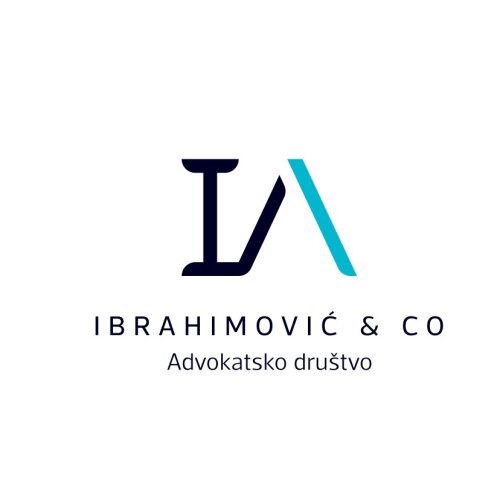Best Conveyancing Lawyers in Sarajevo
Share your needs with us, get contacted by law firms.
Free. Takes 2 min.
Free Guide to Hiring a Real Estate Lawyer
List of the best lawyers in Sarajevo, Bosnia and Herzegovina
About Conveyancing Law in Sarajevo, Bosnia and Herzegovina
Conveyancing is the legal process of transferring property ownership from one person (the seller) to another (the buyer). In Sarajevo, Bosnia and Herzegovina, this process includes a range of activities such as preparing documents, conducting due diligence on the property, registering the transaction, and ensuring all taxes and fees are paid. Conveyancing law in Sarajevo is influenced by national legislation, canton-specific regulations, and municipal procedures, making it somewhat complex. Both residential and commercial property transactions require these legal steps to ensure valid, dispute-free ownership transfer.
Why You May Need a Lawyer
Navigating the conveyancing process in Sarajevo can be challenging due to the interplay of different legal systems and languages, particularly for foreigners and first-time buyers. It is common to seek legal assistance in situations such as:
- Buying or selling residential or commercial property
- Resolving disputes over property boundaries or ownership
- Preparing and reviewing sale contracts
- Ensuring all property-related taxes and debts are settled
- Registering property transfers with relevant authorities
- Addressing inheritance or gift transfers involving real estate
- Handling cases with title defects or missing documentation
A specialized conveyancing lawyer can manage the paperwork, represent your interests in negotiations, and minimize the risk of encountering legal problems after the transaction.
Local Laws Overview
Conveyancing in Sarajevo is governed by the legal system of Bosnia and Herzegovina as well as specific regulations implemented by the Federation of Bosnia and Herzegovina and its cantons. Key aspects include:
- Land Registry System: Property ownership is registered with the municipal Land Registry offices. Accurate land registry records are essential for validating ownership and transfer.
- Public Notaries: Notaries play a crucial role in verifying and certifying sale contracts, ensuring legality, and assisting with registration.
- Taxation: Property transfer tax and notarial fees must be paid upon sale or transfer, generally by the buyer unless otherwise agreed.
- Due Diligence: Lawyers conduct checks for encumbrances, liens, or outstanding debts on the property, which can affect ownership rights.
- Documentation: Several legal documents are required, including proof of ownership, building permits, and property plans.
- Foreign Ownership: While foreign nationals can own property, there are some additional requirements and procedures, such as reciprocity checks.
The conveyancing process is formal and must adhere strictly to administrative steps to ensure legally valid transfer of property.
Frequently Asked Questions
What is the conveyancing process in Sarajevo?
It involves verifying property ownership, drafting and signing a sale agreement before a notary, settling all dues, and registering the new ownership with the local land registry office.
Is it necessary to hire a lawyer for conveyancing?
While not strictly mandatory, it is highly recommended due to the complexity of local laws and the need for proper due diligence and registration.
What does the lawyer do during conveyancing?
The lawyer reviews property documents, checks for legal issues, drafts or reviews contracts, advises on tax obligations, and helps with registration and certification steps.
Can foreigners own property in Sarajevo?
Yes, but some additional legal steps are required such as proving reciprocity between Bosnia and Herzegovina and the buyer’s country.
How long does the conveyancing process take?
The process can take from a few weeks to several months, depending on the complexity of the transaction and the speed of administrative procedures.
What taxes or fees are involved in property transfer?
Typical costs include property transfer tax (usually paid by the buyer), notary fees, land registry fees, and legal fees.
What documents do I need for property transfer?
Commonly required are the deed of sale, proof of ownership, land registry excerpts, ID documents, property plans, and proof of tax payment.
What can cause delays in the conveyancing process?
Delays often result from incomplete documentation, unresolved property debts or encumbrances, slow administrative processing, or title disputes.
Can a lawyer represent me if I am outside Bosnia and Herzegovina?
Yes, you can grant your lawyer a power of attorney to act on your behalf throughout the conveyancing process.
What should I do if I discover legal issues with the property after purchase?
Contact a conveyancing lawyer as soon as possible to assess the situation and determine possible remedies, such as contract annulment or compensation claims.
Additional Resources
People seeking legal advice on conveyancing in Sarajevo can benefit from the following resources:
- Municipal Land Registry Offices - for property registration and records
- Chamber of Public Notaries of Federation of Bosnia and Herzegovina
- Ministry of Justice of the Federation of Bosnia and Herzegovina
- Local legal aid organizations providing free or subsidized legal advice
- Bar Association of the Federation of Bosnia and Herzegovina - for finding licensed lawyers
Next Steps
If you require legal assistance with conveyancing in Sarajevo, begin by gathering all documentation related to the property and the intended transaction. Reach out to a local lawyer specializing in real estate law or contact the Bar Association for recommendations. Discuss your situation, potential issues, and confirm all costs beforehand. A qualified lawyer will guide you through the legal process, protect your interests, and help ensure a smooth property transfer. Do not sign any documents or pay deposits before your lawyer has reviewed and advised on the transaction.
Lawzana helps you find the best lawyers and law firms in Sarajevo through a curated and pre-screened list of qualified legal professionals. Our platform offers rankings and detailed profiles of attorneys and law firms, allowing you to compare based on practice areas, including Conveyancing, experience, and client feedback.
Each profile includes a description of the firm's areas of practice, client reviews, team members and partners, year of establishment, spoken languages, office locations, contact information, social media presence, and any published articles or resources. Most firms on our platform speak English and are experienced in both local and international legal matters.
Get a quote from top-rated law firms in Sarajevo, Bosnia and Herzegovina — quickly, securely, and without unnecessary hassle.
Disclaimer:
The information provided on this page is for general informational purposes only and does not constitute legal advice. While we strive to ensure the accuracy and relevance of the content, legal information may change over time, and interpretations of the law can vary. You should always consult with a qualified legal professional for advice specific to your situation.
We disclaim all liability for actions taken or not taken based on the content of this page. If you believe any information is incorrect or outdated, please contact us, and we will review and update it where appropriate.











